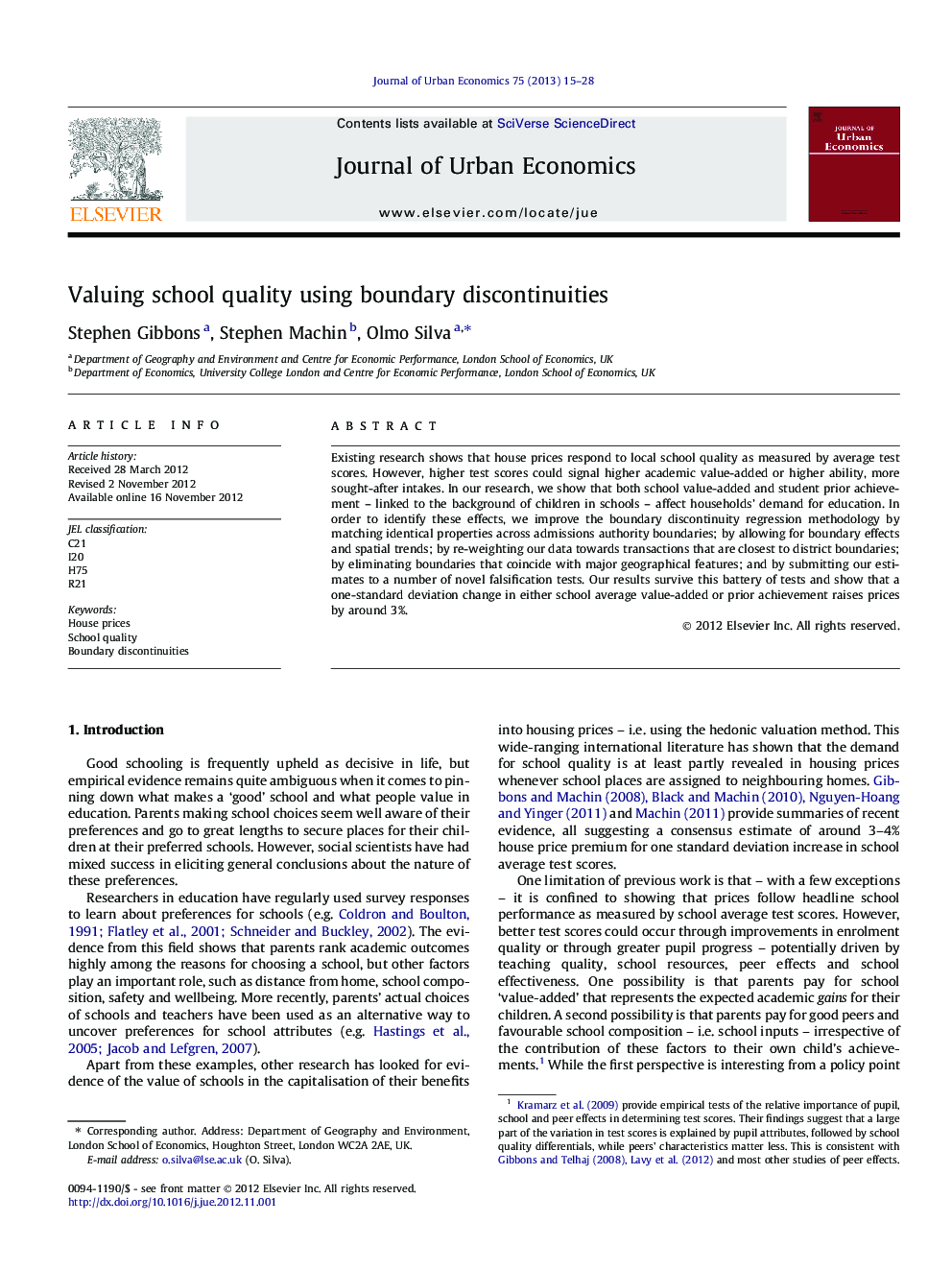| Article ID | Journal | Published Year | Pages | File Type |
|---|---|---|---|---|
| 971211 | Journal of Urban Economics | 2013 | 14 Pages |
Existing research shows that house prices respond to local school quality as measured by average test scores. However, higher test scores could signal higher academic value-added or higher ability, more sought-after intakes. In our research, we show that both school value-added and student prior achievement – linked to the background of children in schools – affect households’ demand for education. In order to identify these effects, we improve the boundary discontinuity regression methodology by matching identical properties across admissions authority boundaries; by allowing for boundary effects and spatial trends; by re-weighting our data towards transactions that are closest to district boundaries; by eliminating boundaries that coincide with major geographical features; and by submitting our estimates to a number of novel falsification tests. Our results survive this battery of tests and show that a one-standard deviation change in either school average value-added or prior achievement raises prices by around 3%.
